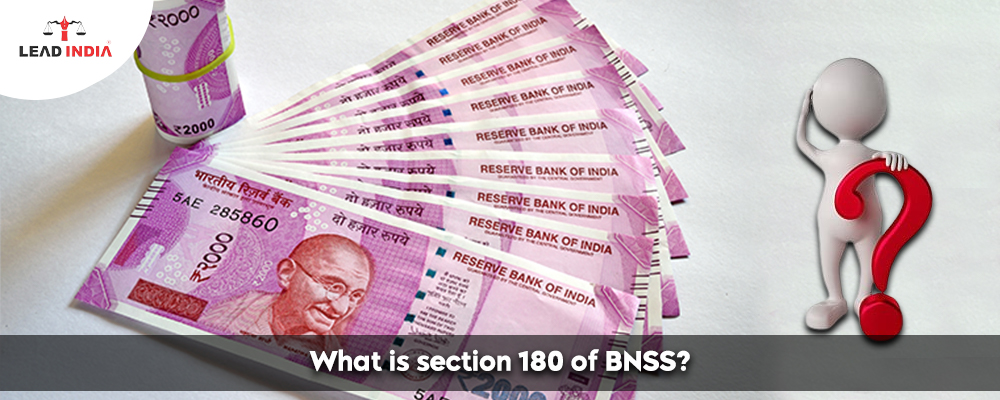Section 180 of BNSS provides for the examination of witnesses by police. It means that the police will examine the witness during the investigation. It replaces the old provision of Cr.P.C. This section outlines the procedure that a police officer should follow while examining the witness. It is an important procedure in a criminal trial.
Section 180 of BNSS
- Sub section 1 states that any police officer who is making the investigation or any other police officer who should not be below such rank as which state government prescribes can orally examine such persons whom he thinks to be acquainted with the facts and circumstances of the case.
- Subsection 2 states that the person is bound to answer all the questions truly. The person can excuse himself from answering such questions which have a tendency to put them into a criminal charge or a penalty or forfeiture.
- The police officer can even record the statement of such persons into writing and he should make a separate record of each of such persons.
- The proviso states that such statements can be recorded by audio–video means.
- The proviso even states that the woman police officer or the woman officer will record the statement of such woman against whom the offense under sections 64, 65, 66, 6, 68, 69, 70, 71, 74, 75, 76, 77, 7, 8, 79, 124 of Bharatiya Nyaya Sanhita, 2023 is alleged to have been committed.
Need A Legal Advice
The internet is not a lawyer and neither are you. Talk to a real lawyer about your legal issue

Importance of section 180 of BNSS
- Section 180 of BNSS provides a clear procedure for the examination of witnesses which will help in streamlining the examination procedure. It will help in creating a strong case against the accused as the section provides a structured method to gather the information. This will even help in quick resolutions of cases.
- The police need to record the statement of the witness formally which as a result will enhance the accountability of police officers. It talks about a written statement which can be helpful in the later stage of trial. It will help in reducing discrepancies and also will reduce the chances of manipulation of witnesses during the investigation
- The section even incorporates the modern approach as the statement can be recorded through audio–video means. It will make the process more transparent.
- This section balances the need for the protection of the rights of individuals and law enforcement agencies. It gives the power to the police to gather evidence but it also keeps in mind that the evidence must be corroborated.
The challenges under section 180 BNSS
- This section provides for discretionary use of technology in recording evidence which can lead to inconsistencies as different police officers will record the evidence differently. Some may use the technology while others may use the traditional method of recording evidence.
- The statements made under this section need to be corroborated otherwise they would not be admissible as evidence in court.
- The police officers must be provided training on how to use technology for which the government will need to invest in training programmes. The training program may be a challenge in some jurisdictions.
Section 180 of BNSS will enhance the effectiveness and accountability of investigations. It has laid down a proper procedure that the police officers need to follow. The success of this section will depend upon the proper training and awareness programs among police officers. Section 180 modernizes the criminal justice system in India.
The free legal assistance, online information and other various legal assistance is provided by Lead India. We provide you with a platform where you can talk to a lawyer and even ask a legal question. Our lawyers are always here to help you with any legal issues. We not only provide online legal support but we also provide the facility of asking a free legal question.





 Talk to a Lawyer
Talk to a Lawyer